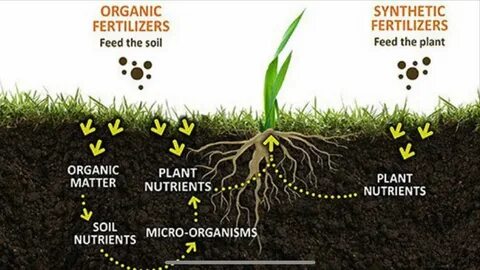Organic-Inorganic Fertilizer Machinery & Equipment Manufacturer
The agricultural industry is rapidly evolving with advancements in technology that increase productivity, sustainability, and efficiency. One such innovation is the development of organic-inorganic fertilizer machinery, which plays a vital role in improving soil health and crop yield. This machinery combines organic and inorganic fertilizers, ensuring a balanced approach to fertilization that supports both the environment and farming operations. In this article, we will explore the importance of organic-inorganic fertilizer equipment, its benefits, and how it is transforming the farming landscape.
What is Organic-Inorganic Fertilizer Machinery?
Organic-inorganic fertilizer machinery refers to the specialized equipment used to produce fertilizers that combine organic and inorganic materials. Organic fertilizers are derived from natural sources like compost, manure, and plant residues, while inorganic fertilizers are synthetic products designed to supply specific nutrients such as nitrogen, phosphorus, and potassium. The combination of these two types of fertilizers aims to provide a balanced and sustainable approach to fertilization.
The machinery involved in producing these fertilizers typically includes mixers, granulators, dryers, and other processing units that ensure the final product is homogeneous and effective for agricultural use. The machinery is designed to handle a variety of raw materials and ensure the proper blending of organic and inorganic components.
The Importance of Organic-Inorganic Fertilizers
Enhanced Soil Health and Fertility
Organic-inorganic fertilizers offer several advantages over traditional single-type fertilizers. One of the key benefits is improved soil health. Organic matter in fertilizers helps to enrich the soil with essential nutrients and microorganisms, which improve soil structure and fertility over time. These fertilizers help enhance soil water retention, reduce soil erosion, and increase microbial activity, all of which are crucial for sustainable agriculture.
The addition of inorganic components ensures that essential nutrients are available to plants immediately. While organic fertilizers improve soil structure over time, inorganic fertilizers provide rapid nutrient availability, ensuring that crops have the right nutrients at the right time. This combination leads to healthier crops and higher yields.

Better Nutrient Availability for Crops
Organic-inorganic fertilizers supply a broad spectrum of nutrients that are necessary for plant growth. Organic materials contribute micro-nutrients such as iron, zinc, and copper, while inorganic fertilizers typically supply macronutrients like nitrogen, phosphorus, and potassium. The synergy between these two types of fertilizers creates a more balanced nutrient profile, improving nutrient uptake by plants.
Plants have specific nutrient requirements at different stages of growth. Organic-inorganic fertilizers ensure that these needs are met throughout the growth cycle, resulting in higher-quality crops. By incorporating both types of fertilizers, farmers can address multiple nutrient deficiencies simultaneously, ultimately boosting crop health and productivity.
Advantages of Using Organic-Inorganic Fertilizer Machinery
Increased Fertilizer Efficiency
One of the main advantages of using organic-inorganic fertilizer machinery is the enhanced efficiency of fertilizer application. By blending organic and inorganic components, these machines create a fertilizer product that can be tailored to the specific needs of different crops. This ensures that farmers can apply fertilizers in precise quantities, reducing waste and optimizing nutrient availability.
The use of advanced technology in fertilizer machinery also allows for better control over the production process. For example, modern machines can precisely control mixing ratios, temperature, and drying times to ensure that the fertilizer is of the highest quality. This level of precision reduces the risk of over-fertilization or under-fertilization, leading to better crop yields and reduced environmental impact.
Sustainability and Environmental Benefits
In recent years, sustainability has become a significant concern for the agricultural industry. Over-reliance on synthetic fertilizers has led to soil degradation, water pollution, and other environmental issues. Organic-inorganic fertilizer machinery helps address these challenges by enabling the production of fertilizers that are both effective and eco-friendly.
The organic components of the fertilizer improve soil health by replenishing organic matter, which enhances soil structure and increases water retention. This reduces the need for frequent irrigation and minimizes the risk of soil erosion. Additionally, organic-inorganic fertilizers reduce the environmental impact of farming by reducing the amount of synthetic chemicals used, promoting more sustainable farming practices.
Cost-Effective Fertilizer Production
Investing in organic-inorganic fertilizer machinery can be a cost-effective solution for fertilizer producers. The machinery is designed to be durable and efficient, which reduces maintenance costs and minimizes downtime. By automating the fertilizer production process, the machinery can help increase production output, reduce labor costs, and optimize resource usage.
Moreover, by blending organic and inorganic materials, the cost of producing fertilizers can be reduced. Organic waste materials, such as compost and manure, are often readily available and inexpensive, making them a cost-effective source of fertilizer. The use of these materials in combination with inorganic fertilizers reduces the reliance on expensive synthetic chemicals, leading to lower overall production costs.
The Role of Organic-Inorganic Fertilizer Equipment Manufacturers
High-Quality Machinery for Optimal Performance
Organic-inorganic fertilizer machinery is a specialized sector within the agricultural industry. To ensure optimal performance and reliability, it is crucial to work with reputable manufacturers who provide high-quality equipment. Experienced manufacturers focus on producing machinery that meets industry standards and adheres to safety protocols. These manufacturers use advanced technology and materials to ensure that the machinery can handle a wide variety of raw materials and produce high-quality fertilizer products.
Customization and Flexibility
Another important factor to consider when choosing an organic-inorganic fertilizer equipment manufacturer is the ability to customize machinery to suit specific needs. Each farm or fertilizer production facility has unique requirements, and manufacturers who offer customizable equipment can ensure that the machinery is tailored to these needs. This flexibility allows farmers and producers to maximize the potential of their fertilizer production, optimizing efficiency and minimizing waste.
How Organic-Inorganic Fertilizer Machinery is Revolutionizing Agriculture
Supporting Sustainable Agriculture Practices
The demand for sustainable farming practices is growing, and organic-inorganic fertilizer machinery is playing a critical role in this transformation. By providing a more balanced approach to fertilization, these machines enable farmers to enhance soil health, increase crop yields, and reduce the environmental impact of farming. The combination of organic and inorganic components helps maintain soil fertility over time, reducing the need for chemical interventions.
Furthermore, the ability to use organic waste materials as part of the fertilizer production process reduces waste and promotes the recycling of natural resources. This makes the entire process of fertilizer production more sustainable and in line with the principles of circular economy practices.
Improving Global Food Security
As the global population continues to grow, the need for increased food production becomes more urgent. Organic-inorganic fertilizers play a crucial role in boosting agricultural productivity, which is essential for ensuring food security. By improving soil health, enhancing nutrient availability, and increasing crop yields, organic-inorganic fertilizer machinery contributes to the overall goal of feeding a growing global population.
Conclusion
Organic-inorganic fertilizer machinery is an essential tool in modern agriculture, offering a sustainable and efficient solution for fertilization. By combining the benefits of organic and inorganic fertilizers, these machines provide a balanced approach to nutrient management, leading to healthier soils, higher crop yields, and reduced environmental impact. As the agricultural industry continues to embrace sustainability, organic-inorganic fertilizer machinery will play an increasingly vital role in transforming farming practices and supporting global food security.
Investing in high-quality organic-inorganic fertilizer equipment from a reputable manufacturer is a smart decision for fertilizer producers and farmers. With the right machinery, it is possible to optimize fertilizer production, reduce costs, and enhance productivity while promoting environmentally friendly practices. As the demand for sustainable and efficient farming solutions grows, organic-inorganic fertilizer machinery will continue to play a key role in shaping the future of agriculture.














Post Comment